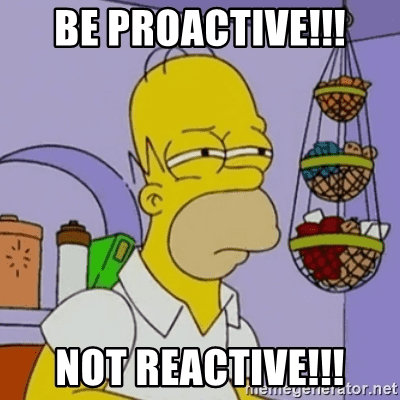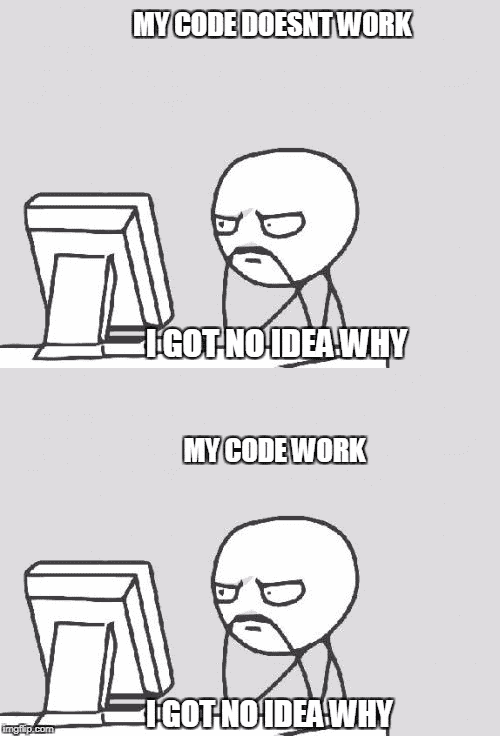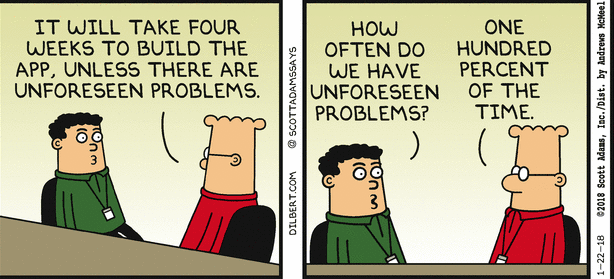On Being A Pragmatic Programmer - Mentality

You can find the intro to the post series here.
Disclaimer
In an attempt to be a better programmer, the following points are merely my own notes and learnings, for myself, that I found helpful for me to be better at what I do. I am by no means perfect, I am good at some things and bad at others.
I share these notes in hope that somebody would find them helpful in their own journey becoming better at their craft.
Mentality
Proactive vs reactive. Think what you can do.
Be Proactive
Be proactive, be in control. I have come across this idea in many of books. Instead of being reactive to the world around me, I should do things deliberately. Some of the applications of being proactive as a programmer I learnt:
- Criticize and appraise my work regularly.
- Think solutions, instead of problems. I try to ask myself, what in my control that I can do to fix a problem.
- Seek feedback regularly.
Takeaway: Be proactive, always think what can I do.

Today Not Tomorrow
Being a craftsman is often associated with being a perfectionist. Taking care of details is essential, but...
Great software today is often preferable to perfect software tomorrow. - The Pragmatic Programmer
I hear this statement regularly in my bubble. I mostly agree with the importance of prioritizing delivering results today over tomorrow.
On the other hand, I should not use this as an excuse to produce low quality results. The key word here for me is great and today.
When can I say now it is great enough? I need to define the minimal acceptable standard that defines my work to be great. These standards should be holistic that consider all the important factors both technical and non-technical. This way I know when my work is in the minimal great shape and is good enough to be shipped.
Takeaway: Great today is almost always better than perfect tomorrow. Takeaway: Define the minimal viable great standard and measure work against it.
Knowledge Portfolio
I have the interest in financial markets and investing. There are lots of concepts from the investing world that could be applied to other aspects of life, including building a software. As craftsman I should aim to treat my knowledge in the same manner I manage my assets in a financial portfolio. These are high level strategies that I learnt are applicable to developing knowledge in the software world:
- Invest regularly - Investing is a continuous process not a one time thing.
- Diversify - Diversify my knowledge portfolio with different technologies.
- Manage risk - A balance between new risky technologies and more robust existing technologies.
- Review and rebalance - Rebalance my knowledge portfolio on yearly basis.
- Buy low, sell High - Master a tool when it is still growing. And when it has reached its maximum potential I should go and learn something else.
Takeaway: Manage my knowledge portfolio. Regularly invest, diversify, manage risk and rebalance.
Be Pessimistic
"Can't read value of undefined - Oh, but I thought this should never happen!" Does this sound familiar to you?
Every programmer has a set of assumptions that their work is based on. When it comes to assumptions, I learnt that being pessimistic pays off!
For example, if I am developing an application that has an external dependency. I would have specific expectations regarding the data I would receive from these systems. Before processing any data I always have to validate the response given. Not only that I should validate the data, I also should handle cases when the "unexpected" happen. This way I am more confident that my work is more robust and resilient.
Takeaway: Be pessimistic when writing code.
Programming By Coincidence
Program Deliberately - know what your doing and document your assumptions.

I have experienced this exact situation a few times. While this is funny, I really should not be programming by coincidence. When making changes in a system, I have to understand the important aspects of the system to be confident to change it. Unexpected results likely have unexpected side effects.
For instance, I am a big fan of tools that help me quickly bootstrap a project. While these tools save a lot of time, to be able to use them, I should understand the code the tool created even if I didn't write it myself. This way I can confidently build on top of the code generated and things are not working just by coincidence.
Takeaway: Know what I am doing and avoid programming by coincidence.
Change-friendly Environment

I see a pattern in almost every software project I work in, unexpected things happen and given assumptions change. Business needs and project's requirements are typically always evolving over time.
When I am designing a system or implementing a module, I must leave room for changes. Even if today I am 100% certain that a given assumption won't change. Because the truth is, it changes. Instead of fighting change, I should welcome it and have my work support it.
Takeaway: Be prepared for the change, create flexible systems.
Other parts of the series:
Credits for the images:
